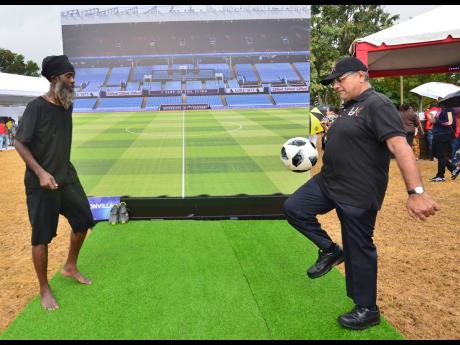Asif Ahmad | The value of sports in difficult times
The COVID-19 pandemic has had serious consequences for people who have lost family and friends. Livelihoods are at risk. The hunt for a vaccine is gathering pace, but until we have that assurance, we are taking tentative steps to live what will be a new normal life.
To talk about sports in the context of the tragic consequences of the virus may seem trivial, especially since all competitions were rightly halted to prevent more infections. We have, nonetheless, felt the absence of sports in all its manifestations. Nostalgia and replays are poor substitutes for a fervent debate on yesterday’s results.
Those among us who are trying to keep children occupied in confined spaces know only too well the need for outlets for pent-up energy. Anyone who plays a team sport or pits their skill against another opponent has missed out on special bonds we have as mates or rivals.
As the English Premier League returns, we are once again able to tap into yet another need we have as fans. COVID-19 has distanced our innate desire for social interaction. The absence of sport has also disrupted our yearnings for tribal affiliations. By adorning ourselves in team shirts and colours, we identify ourselves with our tribal markings. We have new chiefs.
Khadija Shaw is our modern-day Queen Amina of Zaria, and Marcus Rashford has emerged as today’s Robin Hood. Victories are turned into songs from the terraces. We shout our disdain for the smallest of errors and surge energy into the players when we want our team to turn a 3-nil deficit into a win.
For most of us, we imbibe our sports through the media. Even the faint cricket commentary on the BBC World Service was enough in my youth to share the terror of West Indian pace bowlers forcing my English heroes to duck for cover.
Transformation
Before cynical scorn is cast on football played in an empty stadium, it is worth recognising the transformation in the quality of the game with television and advertising revenue. That money has improved the grounds, the sophistication of fitness training, and the development of talent. The access we now have to live matches in the palm of our hands gives us the ammunition for banter, a common topic of conversation with people who we may not know well, and in many cases, a far better view of the spectacle. There have been times when I expect to see a slow-motion replay when I am at Anfield when a clear dead-certain penalty in favour of my team is disallowed by a short-sighted referee. Even more infuriating when I can’t see what is delaying the VAR decision.
Football, which started as rivalry among neighbours in British cities, now has global reach. Not many sports can blend German coaching, Brazilian ball skills, African energy, and raw British diehard spirit into 90 minutes of drama.
In Jamaica, I see the interesting phenomenon of people changing their team affiliation based on the desire to back winners. There are also people who are able to support Barcelona and Liverpool at the same time. Quite how such people manage to reconcile their loyalties when their favourites play each other is interesting. Apparently, there are folk who claim they are neutral fans of the game.
Well, as the Merseyside derby kicks off on Everton’s home ground, I can shed all vestiges of diplomacy. I will be watching, decked in red. I will have to add my own crowd noise and an off-key rendition of You’ll Never Walk Alone. I will recall the legendary Bill Shankly’s observation that the city had two great teams: Liverpool and Liverpool Reserves. If only the next match could have been against Manchester United. Oh to win the Premiership after a 30-year wait at Old Trafford!
- Asif Ahmad is currently serving as the British High Commissioner to Jamaica. Asif is also a lifelong Liverpool supporter.

